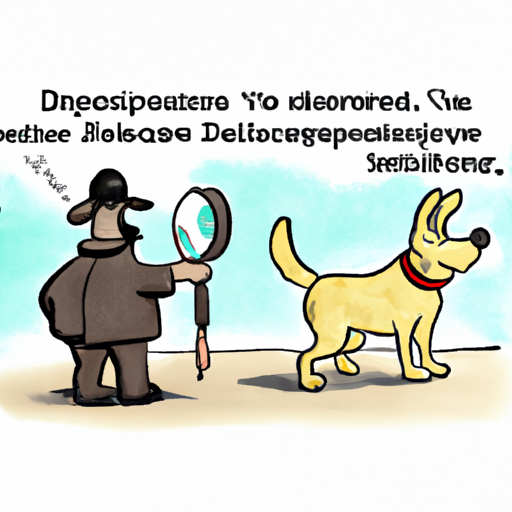Understanding the ‘Sniff’
You’ve probably noticed that your furry companion seems to have a fascination with smelling butts, be it other dogs, cats, or even your own. This behavior, while it may seem strange or even embarrassing to us, is a vital part of how dogs communicate.
Dogs have a keen sense of smell, far superior to our own. They can detect scents and pheromones, which are chemicals that carry social information. When your dog sniffs a butt, they are essentially reading a social ‘newsletter’ about the individual in question.
The Science Behind the Sniff
Dogs have a unique organ called the Jacobson’s organ, also known as the vomeronasal organ. This organ is specifically designed to pick up pheromones. It’s located in the nasal cavity and has a direct route to the brain. When your dog sniffs another dog’s butt, or yours, they are gathering information through these pheromones.
Here’s a simple breakdown of the process:
- Dog approaches butt.
- The scent is detected by the nostrils and sent to the Jacobson’s organ.
- The Jacobson’s organ sends the information to the brain.
- The dog deciphers the information, learning about the individual’s gender, diet, and emotional state.
The Purpose of Butt Sniffing
So, what exactly is your dog finding out from sniffing butts? Well, they can gather quite a bit of information.
- Identity: Dogs can tell who the individual is by their unique scent.
- Gender: Dogs can determine the sex of the individual.
- Diet: Dogs can figure out what the individual has been eating.
- Emotional State: Dogs can sense if the individual is stressed, scared, or excited.
Social Etiquette in Dogs
In the dog world, butt sniffing is a polite and socially acceptable way to greet and get to know someone. It’s not just a random act; it’s a crucial part of their social interaction. So, the next time your dog goes in for a sniff, remember they’re just being sociable in their own unique way.
When to Be Concerned
While butt sniffing is normal behavior in dogs, excessive or obsessive sniffing could be a sign of a medical issue, such as allergies or infection. If you notice a change in your dog’s sniffing behavior, it is best to consult with a vet.
Frequently Asked Questions
Q: Why does my dog sniff other dogs more than people?
A: Dogs are more likely to sniff other dogs as they share the same communication methods. Humans do not produce the same scents or pheromones as dogs.
Q: How can I stop my dog from sniffing people’s butts?
A: Training your dog to understand commands like ‘leave it’ or ‘ignore’ can help control their sniffing behavior during social situations.
Q: Is it harmful for my dog to sniff butts?
A: Generally, no. But if the other dog has a contagious disease or parasites, there could be a risk. Always monitor your dog during social interactions.
Q: Can dogs smell human emotions?
A: Yes, dogs can sense human emotions. They can detect changes in our scent produced by different emotions, such as fear or stress. This is part of the reason dogs are often used as emotional support animals.



